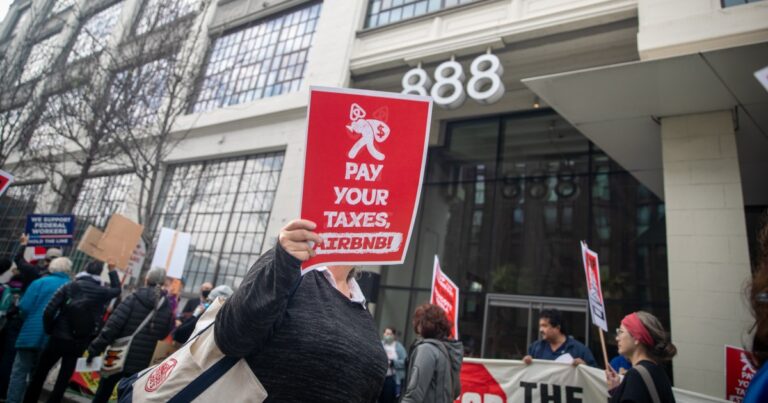San Francisco’s Budget Shortfall and Business Tax Challenges
Overview of Budget Shortfall Trends
San Francisco recently reported a modest improvement in its budget shortfall, which has reduced from $840 million to $817 million. This adjustment can be attributed to higher-than-expected property tax revenues and certain business taxes.
Legal Challenges Affecting Business Taxation
Despite these gains, the city’s financial outlook is overshadowed by ongoing litigation regarding the calculation of gross receipts taxes, which are imposed on businesses for their total taxable activities in San Francisco. This situation poses potential risks to the budget forecast.
Forecast for Gross Receipts Tax Growth
The joint report anticipates an increase in gross receipts tax liabilities, projecting a rise of $150 million in the current fiscal year, bringing the total to approximately $415 million. This forecast also suggests a possible annual growth of up to $50 million in the fiscal years 2025-26 and 2026-27.
Business Responses to Taxation Issues
Several companies, including Airbnb, have taken legal action to contest the tax rates imposed in San Francisco. Airbnb’s lawsuit argues that its gross receipts tax and the homelessness services tax, known as Proposition C, were incorrectly applied from 2019 to 2022.
Impact of Proposition M
In the latest developments, the approval of Proposition M by voters has further instigated tax reform discussions. This measure, which received support from Airbnb and was developed by a coalition of businesses, aims to modify tax rates to benefit larger companies while increasing the financial burden on mid-sized enterprises.
Strategic Approaches by Companies
In response to these challenges, businesses such as OpenAI are not only pursuing legal avenues but are also engaging lobbyists to influence the implementation of Proposition M. The manner in which this tax measure is enacted will significantly affect the fiscal responsibilities of companies across the city and, consequently, the overall budgetary health of San Francisco.
Conclusion
As San Francisco navigates its budgetary challenges amidst evolving business tax policies, the outcomes of pending litigations and the implementation of new propositions will be crucial in shaping the city’s financial landscape. Stakeholders will need to stay vigilant and proactive as they respond to these changes.



